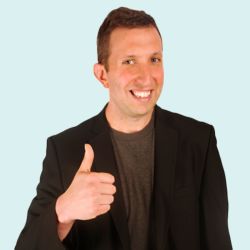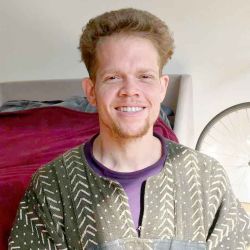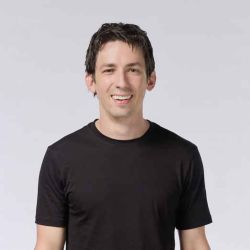Share

This Sustainable Life
236: My environmental role models
Ep. 236
•
Here is the text I read from for this post:
Why my role models? Because people keep saying what I do is inaccessible. That it's too much or extreme. That they need to balance. Well everyone believes they're balanced. I have to balance too.
My difference is that I keep moving toward my values. Instead of letting Americans, the most polluting people in history, be my comparison, I find new role models.
It's community. Once you start polluting less, actually putting effort in, not just straws or the latest trendy thing, but based on your passion, you'll find role models and keep doing more to live by your values because you'll like it.
- Author of Zero Waste Home, which I read and recommend as well as 4 TEDx talks
- Family of four, less than a load per year
- My response to everyone who knee-jerk responds, "Oh, you don't have kids. If you had kids then you'd understand." Well, she has two kids and avoiding garbage brings them together, as it will everyone who tries instead of claiming helplessness.
- Her book on zero-waste living led me to find new waste to get rid of, including cutting down on mailings. Emailing and calling places to remove me from their lists is satisfying and returns control.
- Her TEDx talk on why we should recycle less is the first big public statement I know of to avoid recycling as much as possible in favor of not polluting, since recycling is polluting unnecessarily. Of course all living requires polluting, but recycling is closer to full waster than to benign.
- Her clean home and family camaraderie inspire me.
- She's been a guest on this podcast and we email periodically.
- His site called Low Tech magazine inspires simple living minimizing relying on fossil fuels.
- He shows what is possible, especially what we used to do, often easily, that we then replaced with fossil fuels, like how to move 100 ton blocks of stone, growing plants before greenhouses, and many fun things we've traded for a sedentary, polluting lifestyle.
- You know how it took decades for people to realize building roads created traffic, not relieved it? He finds similar patterns, like how our push for energy security is making us less secure and increasing efficiency often leads to greater total waste.
- He does what he talks about. For example, he runs a solar-powered server, he installed a shower that uses a fraction of a regular shower.
- He shows a low energy future is possible and desirable.
- I invited him to be on the podcast but haven't heard back.
- Did a TEDx talk, probably the first I saw of all the people's here so inspired me early
- She also cites Bea Johnson as a role model
- She was the first person I'd heard of creating a mason jar of landfill waste per year, which enables me not to compare myself with Americans on my waste, which is meaningless because they are about the most trash producing in history
- She went to NYU and students of mine knew her or were connected. I forget the details.
- I invited her as a guest, but we haven't finished coordinating
- She started a store for products that replace disposable stuff. I've met a couple employees from the time I cooked for 50 people in Brooklyn North Farms with almost nothing to throw away after
- His YouTube channel is the best source of his work. Reminds me of Morgan
- Spurlock of Supersize Me.
- Rob is nearing the end of a year eating only food he grew or foraged.
- He did a lot of attention-getting stunts to call attention to our culture's waste. This project shows a level of maturity that suggests significantly more to come.
- He rides his bike a lot. I've considered moving to Orlando to participate, especially when I interviewed Orlando's mayor for this podcast.
- He's been a guest on this podcast and we email periodically.
- Host of the GrowthBusters podcast
- Besides running for office, he's one of the only people I know to promote reducing the population
- It's his passion. He's taking on one of our biggest taboos, or sacred cows, which is also the most necessary change necessary to pull out of our mess.
- It also may be the most misunderstood or overlooked part of our environmental problems.
- People just assume because the population is increasing less -- not decreasing -- that things will work out. All relevant signs I know of say we're over the carrying capacity already, making collapse imminent.
- He's been a guest on this podcast and we email periodically. I've been on his too.
For food and gardening
Links:
- Bea Johnson's video page and book, Zero Waste Home
- Kris De Decker's Low Tech Magazine
- Lauren Singer's TEDx video and other videos
- Rob Greenfield's videos and web page
- Dave Gardner's Growthbusters podcast and movie
More episodes
View all episodes

753. 753: Martin Doblmeier, part 2: Sabbath and Sustainablity
58:45A blackout struck New York City and a large part of the U.S. northeast in 2003. It happened only two years after 9/11. How could we not first wonder if it was terrorism. I had been at work at the time. After waiting maybe an hour, we all walked down the stairs and went home. Phones worked for a while, so I called the woman I was dating and coordinated to meet at her place. I ended up hitch-hiking a ride there.The people who gave me the ride were having a great time. In a big van, they were picking up people here and there, navigating intersections with no traffic lights. We all had a great time, which continued when I reached my girlfriend's place. Later I heard of people dancing around bonfires and so on.For months afterward, when we saw someone we hadn't seen since the blackout, we asked each other's blackout experience. I soon noticed that nearly everyone enjoyed themselves.At first I thought it odd, since we suspected terrorism at first. After a while, I realized technology wasn't the unalloyed good I had thought it was. I started telling friends I was thinking about taking time off from things that used power regularly. One person responded, "You know, orthodox Jews have been taking time off from technology every week for thousands of years."Martin Doblmeier returns for a second conversation to talk about his latest movie, Sabbath, which explores the day of rest in culture. The movie explores several groups each of Protestants, Jews, Catholics, Muslims, and secular communities. It covers history, stories, motivations, and many relevant viewpoints.You'll hear me in the conversation considering how to manifest and explore this concept in my like. I predict you'll consider bringing more sabbath to your life. Since recording the conversation, I've been thinking about how to manifest some regular rest in my life, seeing if I can bring others in on it.Whether you act or not, you'll appreciate how Martin's movie provokes introspection. How did most cultures lose this day of rest? At what cost did we lose it? Do we want to restore it?Watch Sabbath onlineMartin's site: Journey FilmsUpcoming screenings and eventsEducational materials, including many thought-provoking and conversation-provoking questions and discussion points
752. 752: Dave Kerpen, part 1: Delegation for leaders and entrepreneurs
42:04Dave and I go back years, to when we both wrote columns at Inc. I'm surprised I didn't bring him on before. He helps entrepreneurs, leaders, and aspiring leaders develop social and emotional skills, as well as college students aspiring to internships.We recorded now on the occasion of his new book, Get Over Yourself! How to Lead and Delegate Effectively for More Time, More Freedom, and More Success, on improving your skills working with others, like all his books. He shares stories of himself and clients, often personal, leading to practical advice.Sustainability requires changing American and global culture, which requires entrepreneurship and leadership.Dave's page, which links to his books and how to book him for a one-on-oneApprentice
751. 751: Erica Frank, part 1: Living More Joyfully Sustainably for Decades
55:52I met Erica in a online meeting of academics who promote avoiding flying. A major perk for many academics is that universities pay for flying to academic conferences, for research, and for other academic reasons, of where there are many. In other words, they often fly for free. (As an aside, since academics learned about our environmental problems first, people flying free and often include many academics.)I found her comments valid, including a criticism of something I said, so contacted her afterward and invited her to the podcast. I also think people who hold Nobel Prizes are more influential than those who don't, in general, and a goal for this podcast is to bring the most influential people.The conversation was fun and a blast! She does more than research and promote less flying. She lived off-grid long before I started, for example, something we could bond on.More than any actions, I found her tone and attitude engaging and infectious. She enjoys living more sustainably. Most of the world acts like each step of living more sustainably means more deprivation and sacrifice. What do you know, they haven't tried it. Erica has, and found joy and liberation as I did.She is a role model. We can all enjoy sustainability as much as her and more than we enjoy life now, twisted up inside knowing we're hurting people (and wildlife). Enjoy our conversation. Join the club of living joyfully sustainably.
750. 750: Alden Wicker: To Dye For: How Toxic Fashion Is Poisoning Us. You'll Be Shocked
01:12:50Since recording this conversation, I've mentioned to a lot of people, "you wouldn't believe the situation with dyes and poisons in our clothes."The most common response has been something like, "Oh yeah, I've heard. It's terrible."Then I share some of what Alden shares in this conversation and they say, "Wow, I didn't realize it was that serious," and become very interested to learn more.Our clothing touches us intimately. Microfibers enter our lungs. Our children, everyone is affected.You'll value learning from Alden in this conversation, then reading her book To Dye For, then acting personally, then acting politically.Alden's home pageHer book, To Dye ForHer conversation on NPR, among many media appearances
749. 749: Sven Gierlinger, part 1: Transforming the Culture of a New York Hospital Chain as a Chief Experience Officer
01:03:41I heard about Sven through the articles below about the cultural change at Northwell, a chain of hospitals around New York City.I recommend reading the Post article before listening to this episode. It may read overly positive about the food, but Sven and I ate just after recording at the hospital the regular food they serve patients. It was incredible. I would never have dreamed food at a hospital could taste so good and look so appealing. I figured American hospitals had just capitulated and converted to doof.From a leadership perspective, I'm most interested in the processes and people behind changing a culture. Serving better food overlaps with the environment in that everyone knows and agrees high-quality food beats low-quality, especially at a hospital, and everyone knows clean air beats polluted air, but we created a culture that makes low quality hospital food and polluted air normal. Sven helped turn around a system and not just any system. Hospitals handle life and death, face heavy regulation, include doctors with special needs, and more things that raise the stakes. He has to deal with people, technology, finances, and everything.He seems to have succeeded. Can Sven be a role model for we who are trying to change global culture?Two articles featuring Sven:Washington Post: Hospital food is a punchline. These chefs are redefining it.Becker's Hospital Review: How one health system rewrote a menu and big cliché
748. 748: Stephen Broyles, part 2: A Calming, Life Change From One Small Commitment
52:32About fifteen minutes into this conversation, it hit me how powerfully Stephen's commitment affected him. (Sorry I took so long to catch on, Stephen!) All he had to do was volunteer around a body of water.His experience shows the impact of intrinsic motivation. Maybe observing and spending time by the water means as much to you as to Stephen. Maybe it doesn't mean that much to you. It means a lot to him. Things mean as much to you that may not mean as much to others, but acting on them becomes meaningful. That resonance what happened with Stephen, because he picked his commitment based on his connection to nature.Wouldn't you love to be able to help others bring things they care about to their lives as Stephen does? You can, by learning the Spodek Method.
747. 747: Go Alan Go!, part 1: The drummer rocking Washington Square Park
01:08:27Regular listeners and blog readers know I talk about litter and how much we wreck nature, especially my neighborhood's back yard, Washington Square Park. Click the links below to see some of the worst litter you've seen, in a supposedly nice part of town.Today the opposite: someone who brings joy, fun, creativity, music, and dancing to the park. Alan began playing drums in the park three years ago and he rocks the place. Click to watch this video of him in action, though when he plays different music, he creates different vibes, so the video shows only a tiny slice of that magic.You wouldn't believe how much effort he needs to perform each time he plays. You also wouldn't believe how good playing makes him feel, and everyone else there too.If I report the awful, I'll report the awesome. Feel inspired to bring value to your community, even if it isn't designed for profit, though you should donate to his funds since he's a street performer and can use your support (I'll post a link when I get it from him). If you have to work as much as him, you'll love it all the more!Photos and videos of the park when flooded with litter -- the opposite of what Alan brings. Be prepared to cry.LGBTQ+ People’s Garbage and Leaving It Worse Than You Found It: The Pride and Queer Liberation Marches 2023Not only Pride and Queer Liberation: A Regular Day in Washington Square ParkAfter the Pride and Queer Liberation Marches 2022: Washington Square Park wrecked again. I could cry.“Pride Destroyed the Park”, Washington Square Park after a parade (Video)More Pride, Less Pollution in 2022
746. 746: Martin Doblmeier, part 1: What We Can Learn from Dietrich Bonhoeffer
01:02:14I'm searching for role models including people who changed cultures and undid dominance hierarchies, particularly people who came from status. I can think of many who came from subjugated classes, but not many who could have declined to engage, but did instead.Dietrich Bonhoeffer is one. I could share more about him, but my guest today, Martin Doblmeier, made a wonderful documentary about him available online free. It's worth it to watch the documentary before listening to this episode if you don't know much about Bonhoeffer.Martin had more insight into Bonhoeffer than many. He met many people who knew him, and he featured them in the documentary. As you'll see, the documentary is thoughtful and considerate, which told me Martin must have thought deeply about what motivated Bonhoeffer. He shared about these things in the conversation. We also connected it all to sustainability leadership.Bonhoeffer (2003) | Full MovieMartin's film company: Journey FilmsMartin's film Sabbath
745. 745: Mattan Griffel, part 2: Is our dependence on polluting behavior "addiction"?
54:37I have spoken and written at length how I see our relationship with polluting behavior as qualifying as addiction, a view that I think helps frame the challenge of sustainability. Overcoming addiction is harder than creating new technologies or taxing things. It takes powerful internal social and emotional skills. Just acknowledging one is addicted and harming others is a big hurdle, let alone acting on it.Not seeing the huge challenges of taking on one's addiction and trying to overcome it, facing withdrawal and so on leaves us not doing the hard work and using effective tools like listening, role models, compassion, and so on. Now multiply the number of people addicted by billions. If billions of people are addicted to flying, container ship-delivered goods, air conditioning, and so on, we better start soon.Mattan and I talk about how well addiction describes the challenges of changing culture toward sustainability. He's an experienced professional in the field, but not a licensed or trained professional, though licensing and training aren't necessarily as educational as time spent with people overcoming addiction.Listen for yourself, but I heard him see the comparison as valid. I'm also asking him since this addiction model of polluting and depleting appears in my upcoming book.